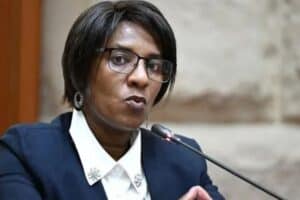The president says he's going the Madiba route – but even Mandela wasn't afraid to crack the whip when he was president.

President Cyril Ramaphosa has sent a message of realism – that his promised New Dawn is still a long way away and that ANC unity takes priority … even over his anti-corruption mission.
Ramaphosa said over the weekend that his main mission was to unite the ANC and that he would follow the Mandela approach to achieve this goal. He was reacting to widespread criticism levelled at him that he was a weak an indecisive leader.
He parried the criticism as he wound up his three-nation tour in Africa and the Middle East where he successfully secured close to R270 billion in investment for the country.
He had also tried to convince Nigeria, Saudi Arabia and the United Arab Emirates, all members of the Organisation of Petroleum Exporting Countries, to increase their oil production which, in turn, would help the crude oil price to drop and relieve pressure on South Africa’s local fuel price.
Ramaphosa said he would rather be called a weak president than lead a divided ANC. He refused to be a dictator within the party, he said.
In a recent briefing to the South African National Editors’ Forum in Cape Town, Ramaphosa conceded the Nasrec leadership outcome had forced him to consult in his decision-making, and he said the Mandela reconciliation approach was the best option.
But political analyst Zamikhaya Maseti said he would struggle because unity in the ANC would be elusive because not everyone would embrace the concept.
“The problem is that other forces within the ANC are not talking unity; instead they continue to undermine Ramaphosa.
“It takes two to tango. His reconciliation approach is not serving any tangible purpose but is weakening him.
He is not taking decisive action within the organisation where necessary because he has to consult all the time,” Maseti said. The call for secession by some in KwaZulu-Natal was a way to undermine Ramaphosa.
“Some had not recovered from the Nasrec defeat. What came out of Nasrec for him was a marriage with the devil,” Maseti continued. While Ramaphosa may wish to emulate Madiba, he would not succeed because Mandela, although he pursued reconciliation, was decisive and provided clear leadership.
Maseti said Madiba had often cracked the whip on the SA Communist Party, telling them that Gear (the Growth, Employment and Redistribution) fundamentals were non-negotiable, and lambasting Cosatu, insisting that Gear was an ANC government economic policy that had to be implemented whether they liked it or not.
He said Ramaphosa could be saved from criticism around his indecisiveness if the State Capture Commission headed by Deputy Chief Justice Raymond Zondo succeeded in identifying culprits and recommended jailing them.
Otherwise the president’s stance would be seen as weak even on the corruption issue. According to Maseti, Ramaphosa needed to mix reconciliation with decisiveness and firmness.
“He must crack the whip where necessary; he can’t be a gentleman in an organisation like the ANC,” he said.
The analyst said both Mandela and Thabo Mbeki had provided clear leadership in the ANC – hence nobody tried to undermine them, notwithstanding the fact that Mbeki was recalled in late 2008.
But another analyst, Prof Tinyiko Maluleke, said: “He is facing an uphill task to lead an organisation that is not only divided at branch and provincial levels but among the top six as well. At Nasrec he was not elected with a mandate to lead and do what he liked.” At the same time, if Ramaphosa neglected to fix ANC problems, he faced being recalled like Mbeki and Jacob Zuma.
“He is focusing on unity in the party and that is the mandate he got in Nasrec. It is a pity he has to defend himself against accusations that he is weak.”
Maluleke said it was unfair to accuse Ramaphosa of having done nothing.
“What he has not done is to trumpet what he has done; he needs to do more to explain his achievements.”






